Sometimes people seeking help, coaching or inspiration ask ‘Do NLP and hypnosis involve some sort of mind control and if so, who will control my mind in a session?”. When that question is asked I first of all remind myself that treating yourself to an NLP or hypnosis session is a brand new experience for many people. It also may well be the first time that they have even mentioned to anyone that they have an issue that deeply concerns them or behaviours that they feel they cannot control (such as jealousy, fear, phobias, anxiety, addiction, compulsions, stuttering, problems related to eating, obsessive thoughts, panic attacks or blushing). They may be thinking this is one of the most important calls I will make in my life. It makes good sense that feeling safe is very important.
When I answer I like to take the time to explain everything that I can, so that each person can gain a down to earth idea of what they themselves may experience, enjoy and benefit from an NLP and hypnosis session. The clients who had similar concerns have said during the session that they ‘feel very safe’ and ‘much calmer and more in control of themselves now’ and after a session these clients exclaim ‘It was so different from how I imagined’, I feel so good now’, or ‘Wow I never thought I would get better so quickly, how amazing’ and ‘can I do more, I want to keep going!’, ‘this is a miracle’ and ‘I can control my mind’. I also draw from my experience of how knowledge of hypnosis and NLP is actually inextricably interwoven throughout my daily life, whether for communicating with people and animals, motivating myself to do housework, exercising and eating well and such like, starting new businesses, writing books or making videos, enjoying exams and challenges, making art or riding horses, being creative and getting a good regenerating night’s sleep. And I know, through 35 years of experience, that gaining a knowledge of these subjects can help you become:
- more aware
- more flexible
- more creative
- more resourceful
- more able to behave how you want
- happier and more joyful
- more playful
- more successful
- more balanced
- more relaxed
- more knowledgeable
The knowledge will also help you to perceive yourself healthily, project the image of yourself as you wish to be perceived by others, and respond to external and internal events as you would most like to. So you could say that NLP and hypnosis sessions will enable people to gain self-control or control of their own mind, emotions, and body.
I was inspired to write about this question of control one day as I was enjoying some time relaxing in a splash of Scottish sunshine. As I zoned out it suddenly occurred to me that some people may miss out because maybe they wonder about this question yet don’t like to phone or email and ask, or they may wonder how going for an NLP and hypnosis session could help. So I thought it would be really helpful to answer and discuss this question here, as my experience continually demonstrates that doing NLP and hypnosis is safe and suitable for all ages and can be fantastic for helping us achieve freedom, peace of mind or to reach our goals and desires whether these are to excel at a sport or art form or to just be well in ourselves. I would like to take longer than I would if I was answering on the phone or email and using this extra time will allow me to share some inspirational concepts and also to answer rather differently by first asking you to consider:
Who or what exactly controls your mind right now?
I asked some of my Facebook friends this question and their answers included:
- ‘my unconscious, or maybe my subconscious’
- ‘ice cream’
- ‘is it the ego?’
- ‘I believe I control my mind. But then again, am I separate from my mind? If I *am* my mind, then it’s an interesting conundrum as to whether I can say I run my mind. Because that would equate to “my mind runs my mind”.
- ‘mmmm programming from cultural environment around me, you know school, mum and dad, religion, TV and popular culture, and the organization that I work for’
- ‘My other than conscious mind and my conscious mind me :)’
- ‘genetics or DNA’
- ‘Bit of Trans-derivational Search for that one! I would say I do – but it’s all about
- focussed attention and unconscious processes!’1
- ‘my mum! … no on second thoughts my cat’
- ‘men in black!’
- ‘Spirit’
- ‘do you mean brainwashing or self control?’
- ‘my mind controls my mind, or it thinks it is in control’
- ‘I can control my TV more than I can control my mind’
- ‘As I understand it, different parts of my brain are responding to various stimuli in my
- internal or my perceived external environment. That makes for a mix of impulses to action that get weighed versus one another with the strongest ones being what I am likely to do.’
- ‘well the billions of interconnected neurons in the brain interact, and the patterns manifest as singular thoughts, for example a person thinks around 70,000 thoughts every day and so these thoughts must surely control the mind.”
- ‘maybe gut and heart feelings really control my mind’
- ‘I am aware and I control my mind so that I can live the happy life that I want’
Whatever your answer is to the question, imagine for a few moments that you can now easily control your own mind.
What if being in control of your mind was as easy as opening and closing a door, or being in the flow like when you do something you find really easy, or climbing a few stairs, going up each simple step in time, in rhythm, or how about even closer to the meaning of rhythm, being carried on a murmuring silver escalator or closer still the way water finds its way naturally from its source to the sea? Soon you would most likely begin to sniff out new levels, tastes, landings, directions, tempos and viewpoints to add more spice, rhythms and generally just jazz things up, wouldn’t you.
With easy control of your own mind what would be different for you?
Would you be more YOU and more authentic, developing your passions, doing things you totally love doing, seeking out mentors and learning more, travelling and experimenting with new things, more motivated, slimmer, fitter, calmer, wiser and happier and how much fun would that all be? See now how you would look, stand, move, how would you sound and notice what you are doing, where you are and who you are with.
How good do you feel now thinking of this projection?
Give this feeling a number (10 out of 10 for the best feeling) and notice what number you choose. Okay! Now let’s move on, and find out what exactly are the steps to control our own minds and thoughts and how exactly a session with a hypnotist and NLP practitioner can be helpful.
External sources include everything in the environment around you. Aristotle (384 BC) is credited with stating that we have five main senses. So for example the woman in the photo below could hear all of the sounds around her, say of the photographer moving, even a plane far away; could see the lemon colour and interesting textures and everything all around; could feel the texture and weight of the fruit and the studio lights warm on her skin; could smell the juice, the rind, the pith and the environment around; and could also taste the acidic juice.
Do you remember the first time you tasted lemon?
As you watch these babies tasting a lemon for the first time you will notice how each of the individuals had a different experience, environments, parents and siblings way of giving the lemon and their response to the babies response. Many of these babies were supported and encouraged to experiment by smiling loving parents while others were surrounded by giggling older siblings. It follows therefore that how each baby filtered, categorized, stored (the V,A,K,O,G loop of data), responded to the event, remembered what happened from their viewpoint and how others responded (to their behaviour) is entirely personal to them. Because tasting lemon juice is such a powerful first experience the babies were probably most aware of using their senses of smell and taste and they were probably less aware of how they were using their other senses. In the book ‘Frogs into Princes’, Richard Bandler and John Grinder write
“Our claim is that you are using all systems all the time. In a particular context you will be aware of one system more than another. I assume that when you play athletics or make love, you have a lot of kinesthetic sensitivity. When you are reading or watching a movie, you have a lot of visual consciousness. You can shift from one to the other.”
And if indeed we ‘code’ our experiences and create our own thoughts so it would seem that we can gain control of our own minds. In the quote above the point is made that we can shift from using one sensory system to another. We use movement, expressions, non- verbal signals and language to both label and express our view about our experiences.The words that we choose relate to the representational system that we are accessing as we speak.
Internal sources include everything that you have taken in and made sense of through using your senses (memory) and created (imagination). So for example you most likely enjoy lemon and know now as an adult what to expect. This knowledge comes from your memory, so we could say that it is internal stored information. If someone told you that a new pink striped lemon that tasted of strawberries was for sale in the shops you would most probably picture it and imagine its taste, you might notice that your mouth and nose move as you imagine this new fruit or you might notice imagined sounds, internal dialogue or the noise of the shop. We use our imagination to build this type of construction and we use information from our memory as our building blocks.
What thoughts, sensations do you notice and what words come to mind when you think about tasting a fresh zingy lemon?
The illustration above gives you some idea of how language reveals which internal sensory system (V, A, K, O, or G) the person is ‘thinking in’ at that moment. An NLP practitioner will listen very carefully to you and use your chosen representational systems, (along with other information, and their knowledge and skills) to choose which NLP processes will be the most effective and comfortable for you. During a session your own awareness of how you have been doing things will increase and often highly important insights are gained. Once you have become aware of this processing it becomes easier to shape yourself. I first learnt about these concepts when I read the following words in Bandler and Grinder’s book ‘Frogs into Princes’.
‘Let me talk a little about how language works. If I look at you and say “Are you comfortable” you can come up with a response. The presupposition of your being able to respond congruently to my question is that you understand the words that I am speaking. Do you know how you understand the word “comfortable” for example?
Woman: Physically
You understand it physically. You sense some change in your body which is distinctive. That shift in your feeling state is distinctive from ‘terrified”. That’s a different response.
She senses a change in her body as a way of understanding the meaning of the word “comfortable”. Did anyone else notice how they understand it? Some of you will see visual images of yourself in a comfortable position: lying in a hammock, or lying on the grass in the sunshine.And a few of you may even hear the sounds which you associate with comfort: the babbling of a brook, or the wind blowing through some pine trees.
In order for you to understand what I am saying to you, you have to take the words – which are nothing more than arbitrary labels for parts of your personal history – and access the meaning, namely, some set of images, some set of feelings, or some set of sounds, which are the meaning for you of the word “comfortable”. That’s a simple notion of how language works, and we call this process transderivational search. Words are triggers that tend to bring into your consciousness certain parts of your experience and not other parts.’
What do you associate with Lemon?
Over the years since your first encounter with a lemon you will have come across other ‘external events’ which you will have linked with that initial experience. For example a friend remembered a lovely lemon coloured toy that she loved as a child and that her grandmother used lemon to clean her house and as an insecticide. She also remembered reading that researchers at Ohio State University found that when participants in an aromatherapy study smelled lemon oil, their mood improved and yet no physiological reason for this has ever been discovered.
What story do you tell yourself?
The lyrics of Bono’s song ‘Yellow’ are based on a home video of his mother wearing lemon yellow. She died when he was 14 and the more I listen to the song the more I wonder about his experience. Poets, singers and artists often make work about the connections in their thinking and their life experiences. It is these experiences and our responses to (and feelings about) these events that determine how our brains and lives develop.
Lemon
See through in the sunlight
She wore lemon
But never in the daylight
She’s gonna make you cry
She’s gonna make you whisper and moan
And when you’re dry
She draws her water from the stone
And I feel
Like I’m slowly, slowly, slowly slipping under
And I feel
Like I’m holding onto nothing
She wore lemon
To colour in the cold grey night
She had heaven
And she held on so tight
A man makes a picture
A moving picture
Through the light projected
He can see himself up close
A man captures colour
A man likes to stare
He turns his money into light to look for her
And I feel
Like I’m drifting, drifting, drifting from the shore
And I feel
Like I’m swimming out to her
Midnight is where the day begins
Midnight is where the day begins
Midnight is where the day begins
Lemon
See through in the sunlight
A man builds a city
With banks and cathedrals
A man melts the sand so he can
See the world outside
her there
A man makes a car
destination
And builds roads to run them on
A man dreams of leaving
But he always stays behind
And these are the days
When our work has come assunder
And these are the days
When we look for something other
Midnight is where the day begins
Midnight is where the day begins
Midnight is where the day begins
Midnight is where the day begins
Midnight is where the day begins
Midnight is where the day begins
Midnight is where the day begins
Midnight is where the day begins
Midnight is where the day begins
Midnight is where the day begins
A man makes a picture
A moving picture
Through the light projected
He can see himself up close
her there
A man captures colour
destination
A man likes to stare
there
He turns his money into light
To look for her
She is the dreamer
She’s imagination
Through the light projected
He can see himself up close
Your brain also connects smells, sounds, feelings, emotions and other sensations which also make the neural connections stronger. The brain is considered “neuroplastic” or changing because in responds to life experiences, and then alters its structure and function. Our brain is constantly learning, altering and adapting. But the more you use and re-trace parts of your “neural network”, the function appears to be “hard wired” or automatic. “Use it or lose it”, “practice makes perfect” and “repetition is the mother of all learning”, are not just an expressions, they are neurological facts.
Knowledge allows you to become aware of the brains power to change and become the observer. Neuroplasticity makes it easier to do some things “automatically” … You can also break synaptic connections by not using the neuro pathway. Neural pruning is the term that is used to describe neurons dying off when not being used.’
Many people say that learning about NLP and hypnosis can enable you to become more flexible, gain control over your thoughts, change your associations with past experiences, exercise the ideas that you want and build strong neural pathways so these thinking patterns come more and more easily, and with these helpful behaviours you can achieve your goals whatever they are, whether they are to deeply relax or become more brilliant. So you can learn NLP and hypnosis to become
- more aware,
- more flexible,
- more creative
- more resourceful
- more able to behave how you want to,
- happier and more joyful
- more playful
- more successful
- more balanced
- more relaxed
- more knowledgeable
- self controlled

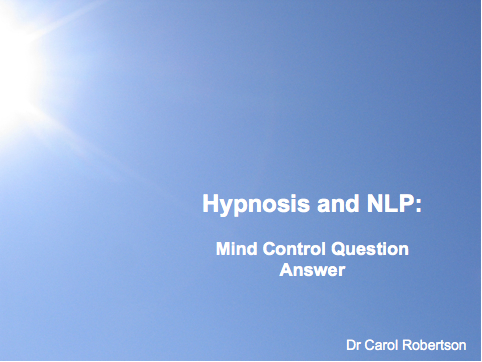

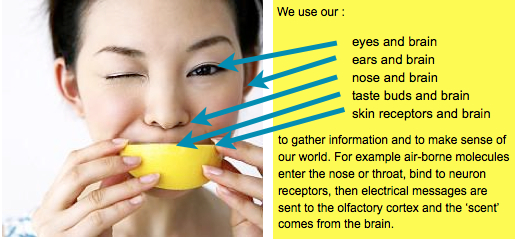
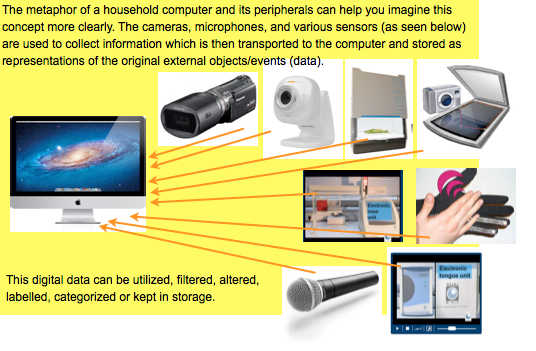
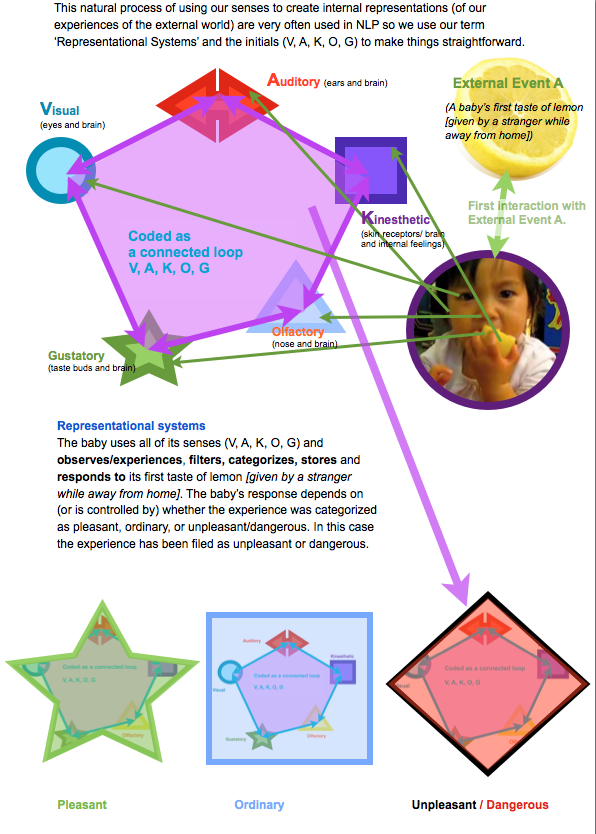
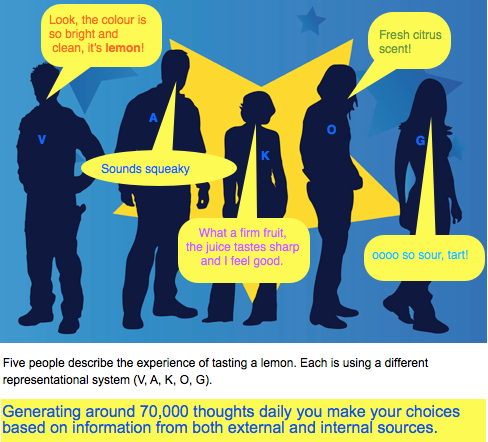
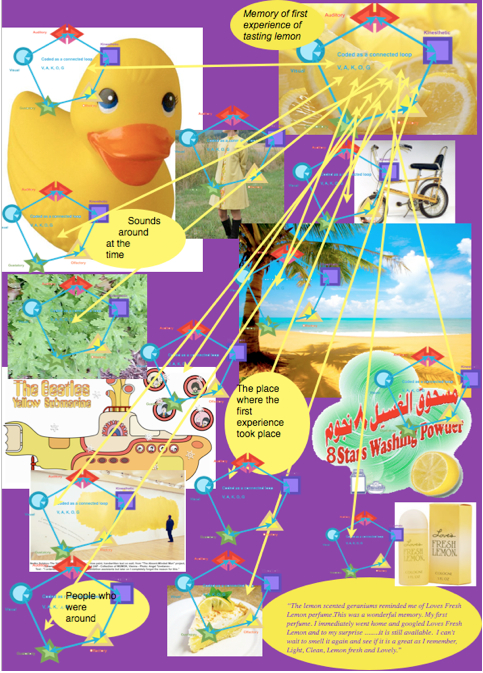
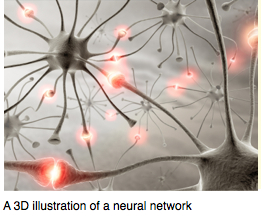

Hi Carol,
Brilliant work, we love the music it’s definitely changed our state and increased our sensory acuity 🙂
The English Sisters
Yay x
Thank you, it is a whole new experience writing a blog and what fun that one can use media such as music and video.
🙂 x
AWEsome. Answering the unasked questions for those who never get around to asking the right folks is being of great service to many.
Epic and excellent blog
It was Epic in the getting going as you know and thank you again for helping me get free of that writers block 🙂
BW
Carol
I noticed some crmmentaoy on the manipulative’ aspect of NLP. What I saw was a useful tool, and a great set of videos to entertain us and illustrate the skills of the presenter(s) I wonder though why there is an emphasis on helping people. Unless helping someone to decide to do or buy something might be described as helping’.NLP didn’t invent manipulation, and nor is that it’s purpose. NLP is a formula for describing how language influences perception and ultimately decisions.
Brilliant blog Carol,
My son immediately started dancing around the room and said…”you should use this in your NLP Mum” and he didnt even know what i was looking at! It immediately took me back to my NLP practitioner course as it was Michael Neil’s anchor music and my mood raised straight away with no thought involved! Soo powerful!
Thanks Carol for sharing all your thoughts and knowledge.
Best wishes,
Julie@Shine-nlp xx
Thank you Julie and please thank your son too. I was driving in my car thinking about him dancing around and feeling pleased that you liked it and then a great flood of inspiration came. It is a ll in a jumble and as soon as I sort it out I will write it down!
I don’t know ho wold he he is but today I met a girl of 11 and she was desperate to know ALL about NLP and hypnosis.
Cheers and thanks again,
Carol
I look forward to reading your inspiration Carol 🙂 My son is 12 and is normally glued to his X Box, which he was today but the music made him jump and he then started dancing around smiling, quite unusaul for him and i thought it really interesting that he connected it with my NLP especially as he didnt know it was an NLP article i was reading. 🙂
Best wishes,
Julie@Shine-nlp
I would LOVE to make NLP games for Xbox 🙂
BW
Carol
Fabulous idea 😀